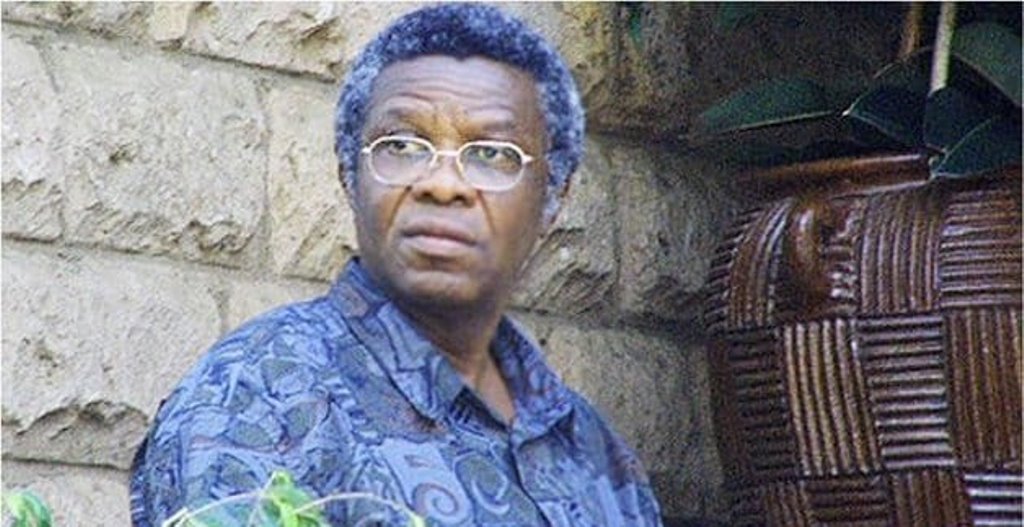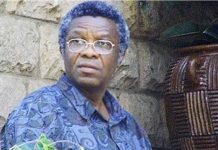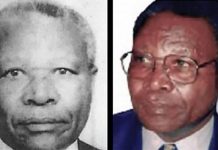AfricaPress-Tanzania: IT almost seems apparent that Rwanda’s Felicien Kabuga, one of the world’s most wanted fugitives, is losing his battle to resist being tried by the International Residual Mechanism for Criminal Tribunals (IRMCT).
The Paris Court of Appeals has decided in favour of transferring Kabuga to Arusha for trial over his role in the 1994 Rwandan genocide.
He will be handed over to the Mechanism, a UN body responsible for trying Rwandans indicted by the International Criminal Tribunal for Rwanda (ICTR) in the Rwandan civil war.
The Court’s President, Judge Pascale Belin, ruled that even in Tanzania, Kabuga could get medical services he is now enjoying in France.
His lawyer, Laurent Bayon, had told the Court that Kabuga was ill and sees a doctor almost each day and that the eight hours flight to Tanzania may jeopardise his health as well as search for truth about his involvement in the genocide. He is currently on a wheel chair.
“There is no evidence that Félicien Kabuga’s condition is incompatible with his detention or transfer. No objective reason to doubt that the Mechanism is able to provide Félicien Kabuga with the same medical guarantees (in Tanzania) as those currently offered in France,” said the judge.
Kabuga had expressed his preference for trial in France. His attorneys made the claim that their client’s ill health and advanced age would have prohibited his being moved to another country.
Kabuga was arrested on May 16 in Asnieres-sur-Seine in the Hautes-de-Seine department outside of Paris.
A fugitive on the run for 26 years who had adopted a false identity, the 84-year-old is known as the financier of the Rwandan genocide.
An arrest warrant had been issued in his name by the Mechanism with a $5 million reward.
While the road to a possible trial is still long for him, the Paris Court of Appeal that was responsible for ruling on the validity of the arrest warrant, ordered the transfer of Kabuga to the Mechanism that has an office in Arusha and another in The Hague, the Netherlands on 3 June.
The mass slaughter of rebel Tutsi and Hutu forces by the Rwandan government, known as the Rwandan genocide, spawned a civil war during the spring and summer of 1994 that killed between 500,000 and one million people.
Kabuga had been indicted by a tribunal in 1997 on seven separate counts, one of which was genocide.
The decision of the Paris Court on Arusha trial comes few days after The Mechanism Judge William Sekule, sitting at Arusha, decided that Kabuga be transferred and tried at the Arusha Branch of the Mechanism and not The Hague.
He was reacting to a motion by the Mechanism Prosecutor Serge Brammertz that was seeking to amend arrest and order for transfer of Kabuga so that he is transferred to The Hague, Netherlands, due to Covid-19 that has caused restrictions in movement and transport.
Dismissing the motion, Judge Sekule said the motion was not sufficiently supported and that if transfer to Arusha from France where he was arrested and is being detained is not possible at the relevant time, appropriate relief may be sought.
The ruling came a few days after Tanzania opened its skies and has since started receiving tourists and other visitors.
Kabuga’s lawyers have said they will challenge the French Court’s decision by filing two appeals in cassation – one on the QPC and another on the transfer to the Mechanism.
Once filed, the Court of Cassation will have two months to decide. Lawyers will then be able to refer the case to the European Court of Human Rights although the procedure is not suspensive. Kabuga’s fate should therefore be decided by the end of September






